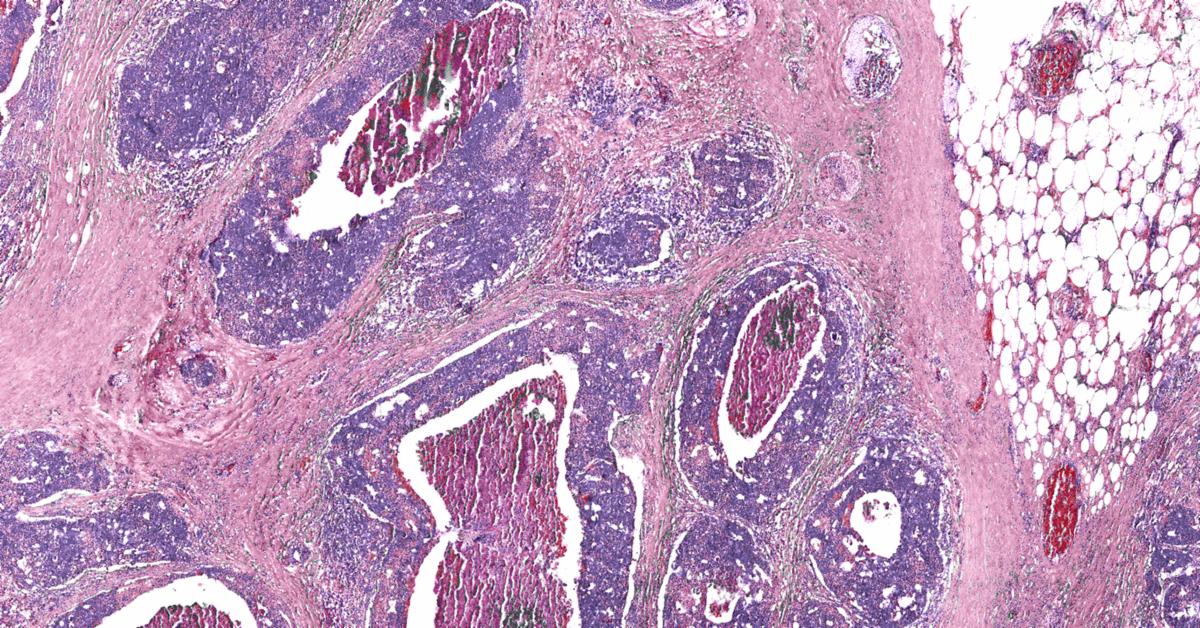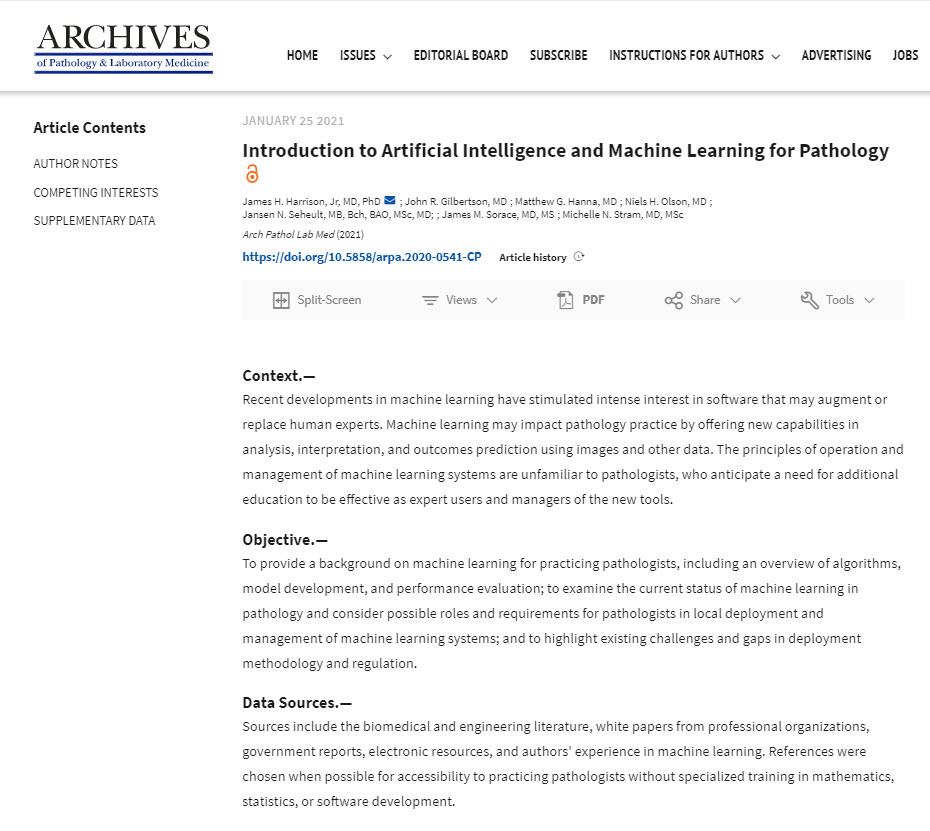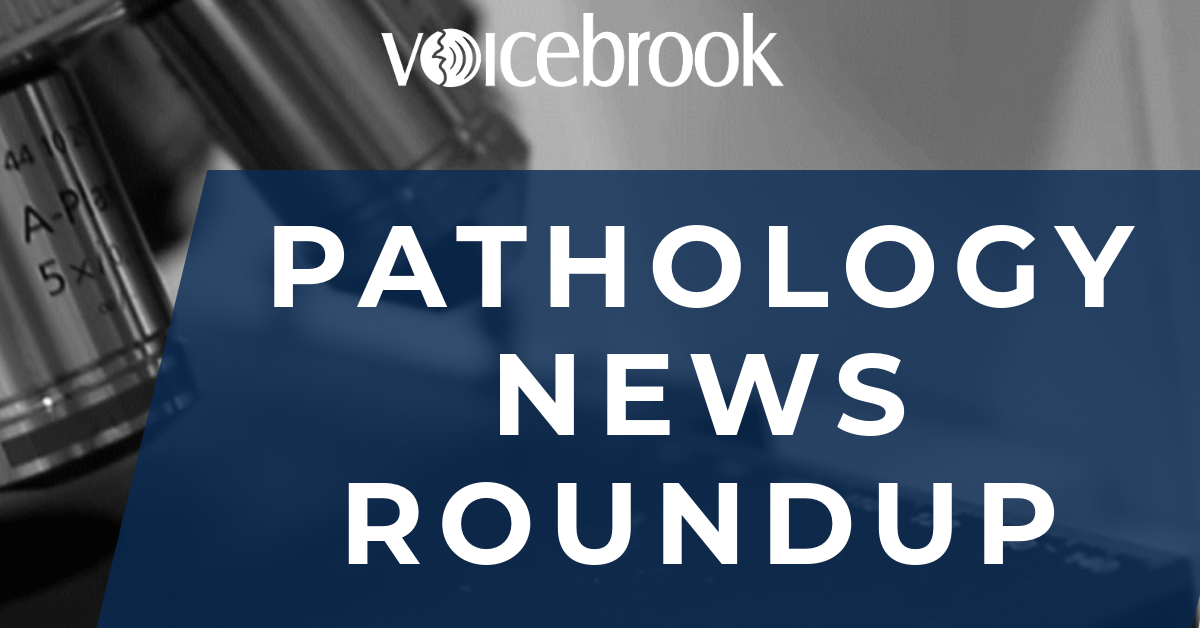Pathology News Roundup: July 2025
CAP25 Is Coming Up. Are you heading to Orlando for CAP25? The College of American Pathologists' annual event, scheduled for September 13-16, is...

A new article on the current state and future use of artificial intelligence (AI) in the field of pathology indicates that AI and machine learning has the potential to make a huge impact on the future of diagnostic testing.

Right now, pathology and other health-care applications of artificial intelligence are in their infancy. The federal Food and Drug Administration has approved only a few AI devices for pathology use, mostly for classifying cells in blood and body fluids and for screening cervical tissue, the authors report. But in research labs, scientists are using machine learning to classify and grade lung and prostate cancer, predict outcomes in lung and brain cancers, measure breast cancer proliferation, predict bladder cancer reoccurrence and much more. The authors describe what they’re seeing in research publications and early prototypes as “tantalizing.”
 Dr. James Harrison. Image courtesy of UVA Health.
Dr. James Harrison. Image courtesy of UVA Health.
“Artificial intelligence systems, especially machine learning systems that perform complex image classification, are expected to have significant impact in two areas in which images particularly important, pathology and radiology,” said Dr. Harrison, director of Clinical Laboratory Informatics at UVA Health and a member of UVA’s Department of Pathology. “Pathologists will likely need to choose, verify, deploy, use and monitor AI systems in the future, and therefore they need to learn the strengths and weaknesses of these types of systems and techniques for their effective management.”
In addition to projections of future applications, Harrison and his colleagues provide an overview of existing AI algorithms and discuss the development and validation of systems that use AI. Their review also discusses potential concerns about clinical implementation of the technologies, emphasizing the importance of careful validation and performance monitoring to ensure AI is used safely and effectively. The article suggests potential regulations that may be needed along the way. “Creation of a regulatory framework with defined best practices for accomplishing these goals is a necessary step for successful dissemination of machine learning in pathology and medicine,” the authors write.



There’s been a gap in the instructional texts for surgical pathology, such that residents preparing for pathology board exams or even practicing pathologists who need a refresher or reference texts lack sufficient information.
That need is being met by a new text from CAP Publications, titled Surgical Pathology Review, by Daniel D. Mais, MD, associate professor of pathology, Department of Pathology, University of Texas Long School of Medicine, San Antonio. Dr. Mais and 14 other contributors wrote this book to ease the transition through board exams and into practice, Dr. Mais writes in the preface.

Dr. Mais explained to CAP Today that he wrote this book with the existing needs in mind. "The available textbooks are of two main types," he said. "First, there are some whose purpose is to teach basic concepts in pathology to medical students. The second type is intended to be used by practicing pathologists engaged in diagnostic work. But these two are like circles in a Venn diagram that do not overlap. There is a knowledge set that is beyond the scope of the first type of book and perhaps considered of insufficient practical import for the second. It is this set of knowledge that we thought deserved a textbook."
To learn more about the book, check out the recent CAPcast featuring Dr. Mais. The text is available for purchase in the CAP's estore.

Voicebrook's Pathology News Roundup features industry headlines and insights that pathology professionals are talking about. Think we should be covering something in particular?
Send your suggestions to content@voicebrook.com

CAP25 Is Coming Up. Are you heading to Orlando for CAP25? The College of American Pathologists' annual event, scheduled for September 13-16, is...

CAP Announces Immersive AI Platform. A new virtual artificial intelligence (AI) platform for pathologists will debut at CAP25, September 13-16 in...

The College of American Pathologists (CAP) is rebuking the spread of misleading and inaccurate COVID-19 information, and warning its members to take...